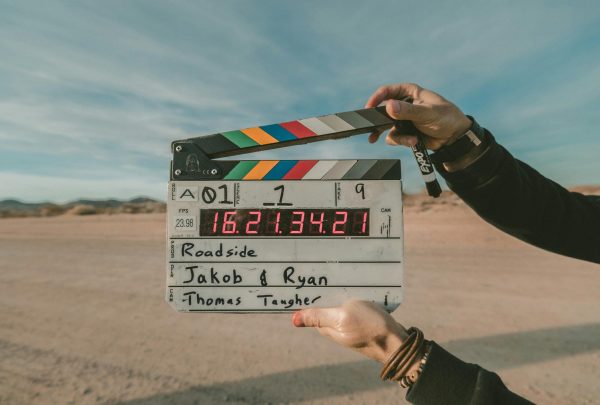When Is The Pen Not Mighty Enough?
I ask the class a question and wait. As the silence lingers for longer than is normal, I ask again. A few pairs of fleeting eyes look up briefly but then immerse themselves back in their screen. With everyone’s attention firmly focused on their laptop, I have a class with faces like glazed donuts.
I make a decision to unplug them all from their social sensory deprivation chamber and ask the class to close their laptops. “But it’s so much easier to type my notes” exclaims one glazed donut. “I can’t write down everything you have on the board” says another. A sigh of exasperation escapes my lips as I make a firm decision to have no laptops for note-taking in my examination classes.
As teachers, students and parents, I’m sure we’ve all felt the isolation blinds drawn when working on a laptop, but closing the screen has a multitude of cognitive benefits that go far beyond the simple human disconnection that so frustrates people. In fact, rather than encouraging the blanket use of technology to take notes in class, we really should be asking why the humble pen is not mightier in the minds of students.
Nowadays students are distracted by technology like never before. A study published in the 2016 ‘Journal of Media Education’ reported that American students spend a fifth of their time in class doing things on their devices that have nothing to do with schoolwork. Having a 1-to-1 program at FIS, I would hazard a guess that our figures would come to a similar (if not more damning) conclusion. The report states that during the typical four years of high school education – 9th through 12th grade – students may be distracted for “two-thirds of a school year”. Can we really afford for this learning time to be simply lost in texting (reported by 87% of students), social networking (70%), web surfing (42%) and gaming (10%)?
I’m certainly not averse to using technology in the classroom and the confirmation of this can be found every day in my lessons. I have a projector from which I share lesson content, students access material on Haiku, and we use our devices at times to collaborate on different projects. But it is the exclusivity with which it is used that allows it to be a tool for use, rather than a tool for distraction. Let’s take the average teenage laptop in the classroom as an example – multiple tabs open on a browser, multiple school-based applications running, and several social media apps lurking in the background. The ability to concentrate with the distracting nature of this multi-tasking monster is impossible. A University of Sussex study found that people who multi-task across multiple different devices had smaller grey matter density in the anterior cingulate cortex (ACC) – this is the part of the brain that deals with cognitive function and socio-emotional response. So the more you multi-task the stupider your brain gets, and the more socially anxious you become.
While these studies may be evidence enough for us to put the devices away, there is another compelling argument – the cognitive benefits of writing notes by hand. A study from Princeton University shows that we process information better when handwriting notes because we take them more slowly (often an argument in favor of using a laptop), and can better retain the material when it is written down. The study reported that college students who took their notes on their laptop “were more inclined to take verbatim notes than participants who wrote longhand”. This would perhaps lead one to the argument that the students who had taken their notes on laptops would have a more complete record of the notes in a particular lesson, however learning is about cognitive encoding, retention and recall, and taking verbatim notes via laptop does not allow the material to be encoded in the memory in the way that longhand notes do. In fact, even when given a week to revise material, our Princeton study concludes “participants who had taken notes with laptops performed worse on tests of both factual content and conceptual understanding, relative to participants who had taken notes longhand”. So the appealing part of taking notes using our laptop – the fact that we can write them more quickly – is actually the part that undermines our learning. It seems to make sense that if notes are copied indiscriminately or transcribed from the board, little synthesizing of information takes place. And if we are not synthesizing, summarizing or evaluating content, where does our learning take place?
study from Princeton University shows that we process information better when handwriting notes because we take them more slowly (often an argument in favor of using a laptop), and can better retain the material when it is written down. The study reported that college students who took their notes on their laptop “were more inclined to take verbatim notes than participants who wrote longhand”. This would perhaps lead one to the argument that the students who had taken their notes on laptops would have a more complete record of the notes in a particular lesson, however learning is about cognitive encoding, retention and recall, and taking verbatim notes via laptop does not allow the material to be encoded in the memory in the way that longhand notes do. In fact, even when given a week to revise material, our Princeton study concludes “participants who had taken notes with laptops performed worse on tests of both factual content and conceptual understanding, relative to participants who had taken notes longhand”. So the appealing part of taking notes using our laptop – the fact that we can write them more quickly – is actually the part that undermines our learning. It seems to make sense that if notes are copied indiscriminately or transcribed from the board, little synthesizing of information takes place. And if we are not synthesizing, summarizing or evaluating content, where does our learning take place?
In our global fast-paced world, students need to be given the skills to be successful in a future that hasn’t been invented yet. Technology will play a significant part in this future and it already permeates almost every part of our lives. But can we really afford to leave behind the cognitive and social skills that time without technology permits us to have? Put down your device and look around. Perhaps that donut is as delicious to know as it is frustrating to look at.











chris hill • Dec 9, 2016 at
One has to get the balance right in the classroom. For pair work, for example, the google.doc in which students can work parallel with one-another, correct each others work and finally present on the smartboard has actually taken the place of the piece of scrap paper on which kids used to write their notes when collaborating. It obviously has so many advantages, nobody wants the piece of scrap paper back. However, it’s interesting to see that to the present day there are instances where the majority of students still prefers pen, highlighters and pencils to electronic devices. This rings true for preparation for oral exams in IB literature and language and literature courses, for example. When I asked students why this was so, they said that annotating in a book by hand and finding key passages within a text in order to analyze it increased the actual retention rate. When a literary excerpt in the IB exam was presented to them, they felt that they could put this excerpt into context easier when they had actually seen it in the actual book and annotated it before by hand. So, as always, we as a school have to get the mixture right in order to be most successful!
Rhiannon Wood • Dec 4, 2016 at
There is certainly much research to support the notion that handwriting, which requires a different physical action to typing, is more strongly ‘wired’ to the brain and thus plays a stronger role in memory formation. One year I remember talking to Mr. Siaflas about his student’s IB history results which were extremely good and asked him if there was something specific he did that resulted in the students being so successful in IB history – the only thing he could think of was that he required all student notes to be taken by hand and not on the laptop – take note!!